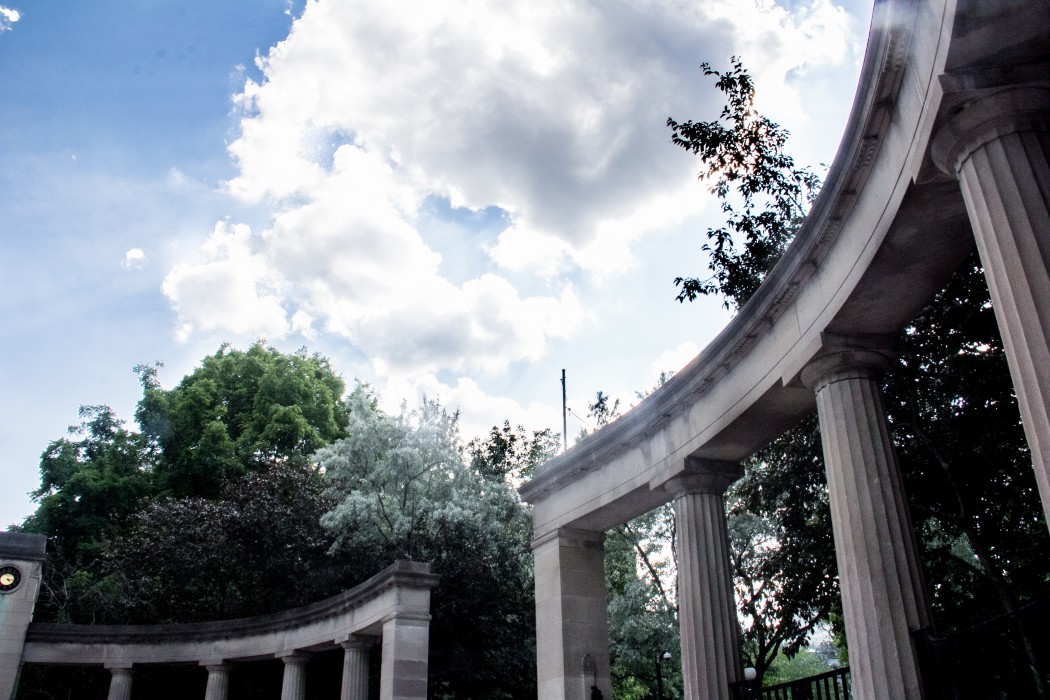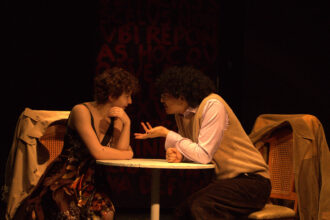McGill is far from a politically apathetic campus – one simply has to view the comment section on a Spotted McGill post to understand that. What is not as widely discussed however is student involvement in politics on the national level. With the 42nd Canadian general election in full swing, and the narrow gap in polls, the campaign is present on McGill campus through the efforts of the campus clubs of the three major political parties: NDP, Liberal, and Conservative.
Network of Support for Local Candidates
One of the major functions of on-campus affiliates during the writ period is to provide a network of support for the local candidates in Montreal. All three clubs hosted local candidates at their first meetings in order to understand how to best advocate for their respectives ridings. Both Liberal McGill and NDP McGill are focusing on candidates within the Ville-Marie-Le Sud-Ouest-Île-des-Soeurs riding, while supporting others in the greater Montreal area.
Both organizations commented on the nature of this riding, as its boundaries have been redrawn and there is no local incumbent, making for an interesting race.
Alexei Simakov, president of Conservative McGill, explained that given the current level of support for the Conservative Party of Canada in many areas of Montreal, his group has a different strategy. “We are appealing to demographics in the city that are more Conservative,” said Simakov. They will focus on campaigning for Robert Libman in the Mont-Royal riding as well as for Richard Sagala in the Notre-Dame-de-Grâce, Westmount riding and Steve Shanahan in the Ville-Marie-Le Sud-Ouest-Île-des-Soeurs riding.
Canvassing for their candidates is a priority for all three groups, with Liberal McGill campaigning in the Ville-Marie area twice a week. The NDP also canvasses right here on campus, handing out pamphlets in between classes.
I think one of the biggest problems facing Canadian democracy is that youth aren’t voting; and I don’t understand why university campuses are not the hub for political involvement, because if students vote that can change the entire election.
Youth Involvement and Participation
As representatives of youth within each of their respective parties, NDP, Conservative, and Liberal McGill are prioritizing youth involvement during this election. They will all be representing their parties’ platforms as well as explaining the importance of voting at an upcoming local high school event.
Expressing her concerns, Malaya Powers, co-president of NDP McGill states, “I think one of the biggest problems facing Canadian democracy is that youth aren’t voting; and I don’t understand why university campuses are not the hub for political involvement, because if students vote that can change the entire election.”
The President of Liberal McGill, Greta Hoaken, has similar thoughts. “Once youth participate more, politicians have to listen to them more, and the youth that are in politics generally get to be heard.”
Having students and other youth vote and be involved in politics is also an important part of Simakov’s plan to assist the local candidates, saying that youth provide a different kind of energy that would not otherwise be present.
Political Engagement at McGill
Liberal, NDP, and Conservative McGill all reported record numbers of students attending their first meetings this year, with some even doubling their past membership. There are also a number of inter-party events taking place on campus over the weeks leading up to Election Day. These include a candidate’s night on September 22; a viewing of the Munk Debate on September 28; and an election debate hosted by SSMU and CKUT Radio on September 30.
Discussing the importance of these events to all three groups, Powers mentioned that,“some of our policy initiatives are very straightforward, so even if someone can only spare a few minutes, they become so much more informed, and it is those little points that can really affect them.”
Liberal McGill aims to create a social atmosphere with its members – and the student population in general – in order to foster the best possible discussions about policy. “We create a really good network of people where we support the diversity of the Liberal party,” Hoaken maintains. “We are a centrist party and encourage dissent within our own group.”
I would be very satisfied if McGill had a higher average turnout than students across the country.
Get Out and Vote Efforts
A common theme among the campus clubs is the emphasis on voting and its important connection to youth involvement as a whole within the political sphere. Voting will take place on campus from October 5th to 8th, with Canadian resident students being able to vote and have their ballot sent to their hometown riding.
To address common questions and barriers to voting, the NDP has been handing out flyers addressing students’ concerns to increase voter turnout. Liberal McGill is also determined to raise youth engagement in politics. “I would be very satisfied if McGill had a higher average turnout than students across the country. Then we would know that our efforts have actually accomplished something,” stated NDP McGill co-president Jacob Schweda.
Hoaken supported this statement, explaining, “My main goal … is not to get people to vote Liberal, it is to get people to vote and the Liberal part comes in second.” Positive feedback from the student body indicate that their efforts and initiatives have been successful so far
Conservative, NDP, and Liberal McGill encourage students to ask them questions about their respective party’s policy platforms. For information about voting, students are encouraged to contact Elections Canada.








